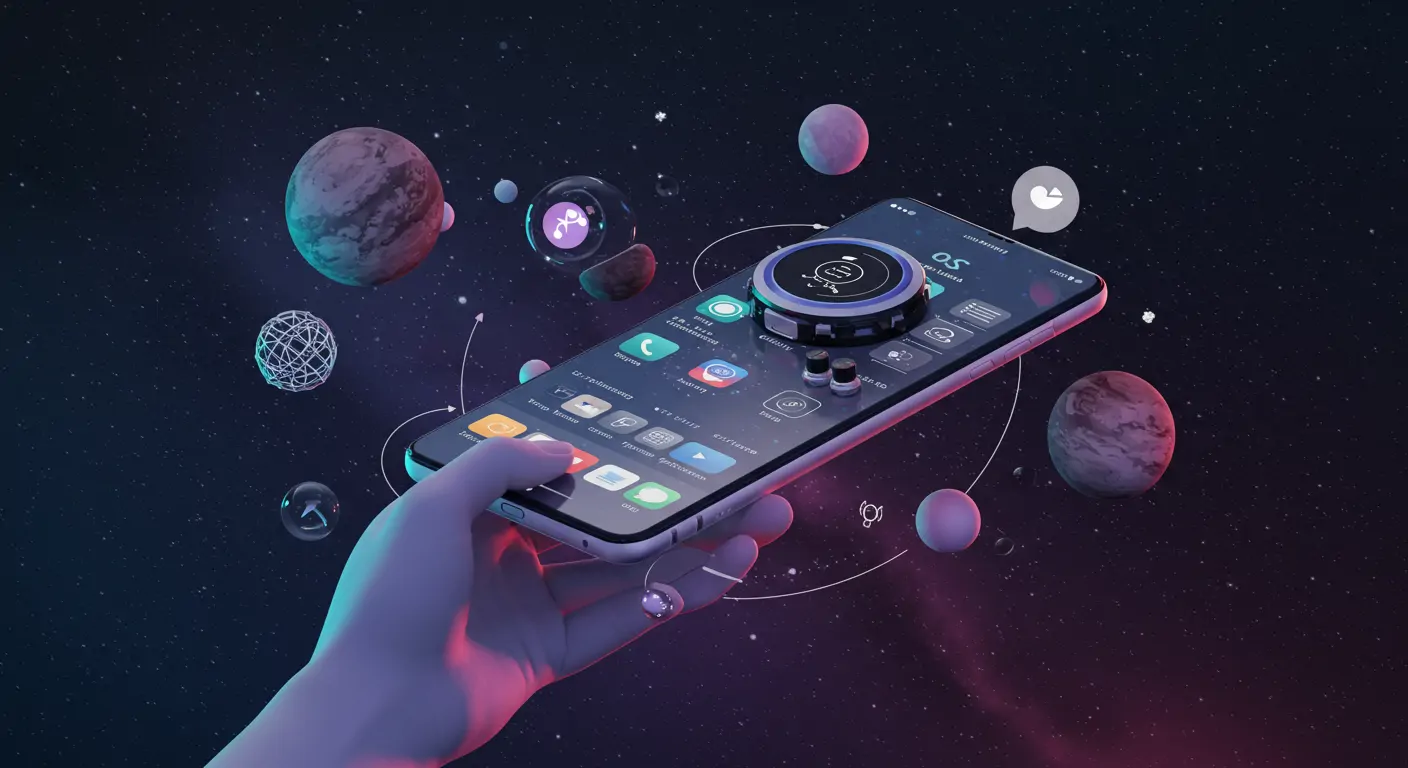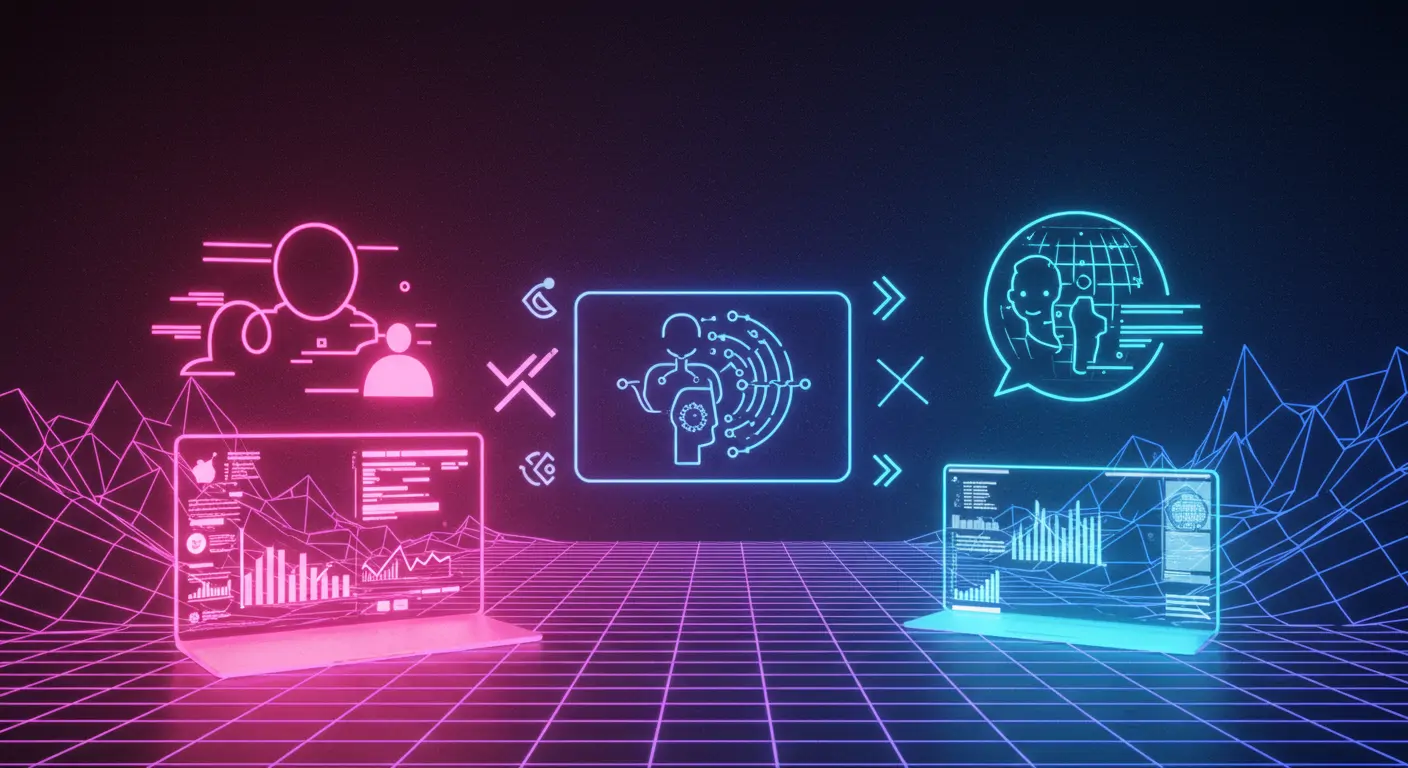Introduction: Why This Matters Now
In early 2025, a groundbreaking report revealed that AI-powered app marketing tools are reducing user acquisition costs by an astonishing 70%, reshaping the digital marketing landscape. This paradigm shift is not only a testament to AI's transformative power but also a critical development for marketers and app developers navigating an increasingly competitive market. These tools are becoming essential as they offer a significant competitive edge, making it imperative for businesses to adapt or risk falling behind.
Read time: Approximately 25 minutes
Key Drivers: What's Fueling This Trend
Driver 1: Hyper-Personalization Capabilities
AI tools provide unmatched personalization by analyzing vast amounts of data to tailor marketing strategies to individual user preferences. According to Forrester Research, companies using AI for personalization saw a 30% increase in user engagement in 2024.
Driver 2: Cost Efficiency and Resource Optimization
AI marketing tools streamline resource usage by automating repetitive tasks. A 2024 survey by Deloitte indicated that 65% of firms adopting AI reported a 20% reduction in operational costs.
Driver 3: Improved Predictive Analytics
With AI's predictive capabilities, businesses can anticipate consumer behavior more accurately. Gartner projects that by the end of 2025, 50% of all digital marketing strategies will explicitly include AI-driven predictive analytics.
The Current State: What's Happening Right Now
As of late 2024, several pivotal developments have underscored the momentum behind AI marketing tools:
- April 2024: Tech giant Meta introduced a new AI marketing suite, claiming a 60% improvement in ad performance metrics.
- August 2024: Google AI's AdOptimizer tool gained traction among SMEs, resulting in a 50% reduction in CPA (cost per acquisition).
- November 2024: A Microsoft-led study found that 70% of Fortune 500 companies are integrating AI into their marketing strategies, up from 40% in 2023.
Traditional marketing approaches are faltering, overwhelmed by the pace at which consumer expectations evolve, highlighting the necessity for AI-driven solutions.
Real-World Impact & Case Studies
Case Study 1: AppDynamics
What they did: Leveraged AI to refine user targeting strategies.
Results: Achieved a 65% reduction in user acquisition costs within six months.
Key lesson: Precision targeting substantially boosts marketing ROI.
Case Study 2: Spotify
What they did: Used AI to personalize in-app advertisements.
Results: Improved conversion rates by 40% as of mid-2025.
Key lesson: Personalized content significantly enhances user engagement.
Caption: Data visualization
Industry Implications
For Developers
- Focus on AI integration skills
- Growing demand for AI expertise in app development
For Businesses
- Strategic shift toward AI-driven marketing
- Enhanced competitive positioning through reduced costs
For Investors
- Opportunities in AI-driven startups
- Risks associated with traditional marketing investments
Challenges & Criticisms
Despite the evident benefits, there are notable challenges:
- Data Privacy Concerns: AI tools rely heavily on data, raising privacy issues.
- Technological Dependency: Over-reliance on AI may stifle creativity.
- Skeptics Questioning ROI: Critics argue initial AI setup costs can be prohibitive.
Addressing these issues is crucial for sustainable AI integration in marketing.
Future Outlook: What's Next
In the short term, expect AI-driven marketing strategies to become the norm by late 2025. Long-term, we anticipate AI will evolve to offer even greater personalization and efficiency gains. Key milestones include widespread AI adoption by early 2026 and further advancements in AI capabilities. Businesses should proactively invest in AI infrastructure to stay competitive.
Frequently Asked Questions
- What are AI-powered app marketing tools? These are platforms using AI to enhance marketing efficiency and effectiveness.
- How do they reduce costs? By automating tasks and improving targeting precision, reducing wasted spend.
- What industries benefit most? Primarily tech and e-commerce sectors, though benefits are cross-industry.
- Are there adoption barriers? Yes, including cost of implementation and data privacy concerns.
Conclusion: Key Takeaways
- AI marketing tools are reshaping industry standards by drastically cutting costs.
- Personalization and predictive analytics are key drivers.
- Balancing AI benefits with privacy concerns is critical.
- Invest in AI infrastructure now to remain competitive in the future.
For more insights, explore detailed guides on integrating AI into marketing strategies.




